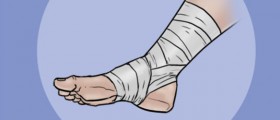
What Are Fluoroquinolones?
Fluoroquinolones represent a group of antibiotics. The most commonly used medications from this group are moxifloxacin, Ciprofloxacin, ofloxacin, levofloxacin, lomefloxacin, norfloxacin, enoxacin, gatifloxacin and sparfloxacin.
Fluoroquinolones are very powerful antibiotics and they are prescribed in case of a whole variety of infections. Newer fluoroquinolones are better absorbed and they are effective against a wider variety of gram-negative and gram-positive organisms. Furthermore, they stay longer in the body meaning that only one or two daily doses are necessary for maintaining the optimal level of the drug in the organism.
Fluoroquinolones are generally prescribed in case of respiratory illnesses (acute sinusitis, bronchitis and pneumonia), sexually transmitted diseases, diabetic foot infections, urinary tract infections, kidney infections and prostatitis (inflammation of the prostate).
Side Effects of Fluoroquinolones
Fluoroquinolones are basically well-tolerated. However, as it is the case with any other medication even this group of antibiotics has certain side effects. Majority of side effects are mild and self-limited and in rare cases a doctor decides to discontinue fluoroquionolones. On the other side, there is also a chance of severe and even life-threatening side effects that require prompt discontinuation.
These antibiotics are allowed for the use of people over the age of 18. They are not recommended for children and teenagers since they may cause developmental problems. Apart from children and teenagers fluoroquinolones should not be prescribed to pregnant and breastfeeding women.
Gastrointestinal side effects of fluoroquinolones include nausea, vomiting, diarrhea, constipation and abdominal pain.
Central nervous system side effects are drowsiness, dizziness and lightheadedness. Some people may feel less alert and suffer from insomnia. Fluoroquionolones are not supposed to be administered to people suffering from epilepsy since they increase the chance of seizures. They are also forbidden for people with previous cerebral trauma and those suffering from anoxia.
Fluoroqunolones are able to increase one's sensitivity to sunlight. Even brief exposure to Sun's rays during treatment may cause rash and severe sunburn.
One more potential side effect of fluoroquinolones is tendon injury (tendonitis or tendon rupture). The drugs are able to weaken the tendon and make them more susceptible to inflammation and rupture. Pain and inflammation of tendons require prompt discontinuation of fluoroquinolones. Such patients must have plenty of rest and return to their daily activities once the affected tendons have properly healed.
Cardiovascular side effects of fluoroquinolones include cardiotoxic effects and they are generally reported in new members of the group.
In some cases fluoroquinolones may cause hyper/hypoglycemia. And finally, some people may develop hypersensitivity to fluoroquinolones. The reaction is usually mild to moderate and requires prompt discontinuation of the treatment.

















Your thoughts on this
Loading...